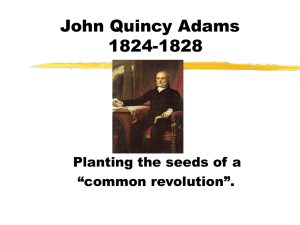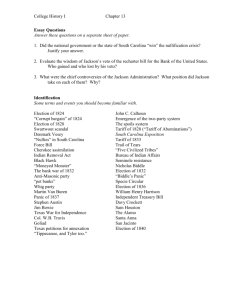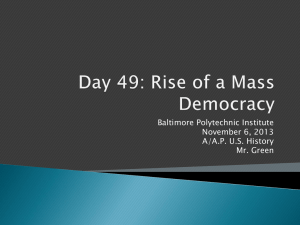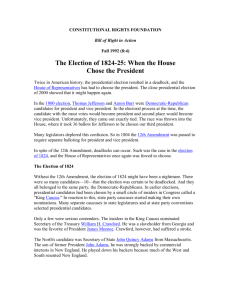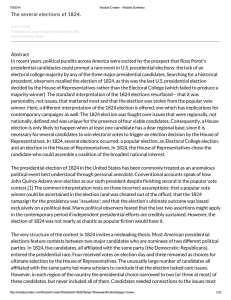jqadams_presidential election.doc
advertisement
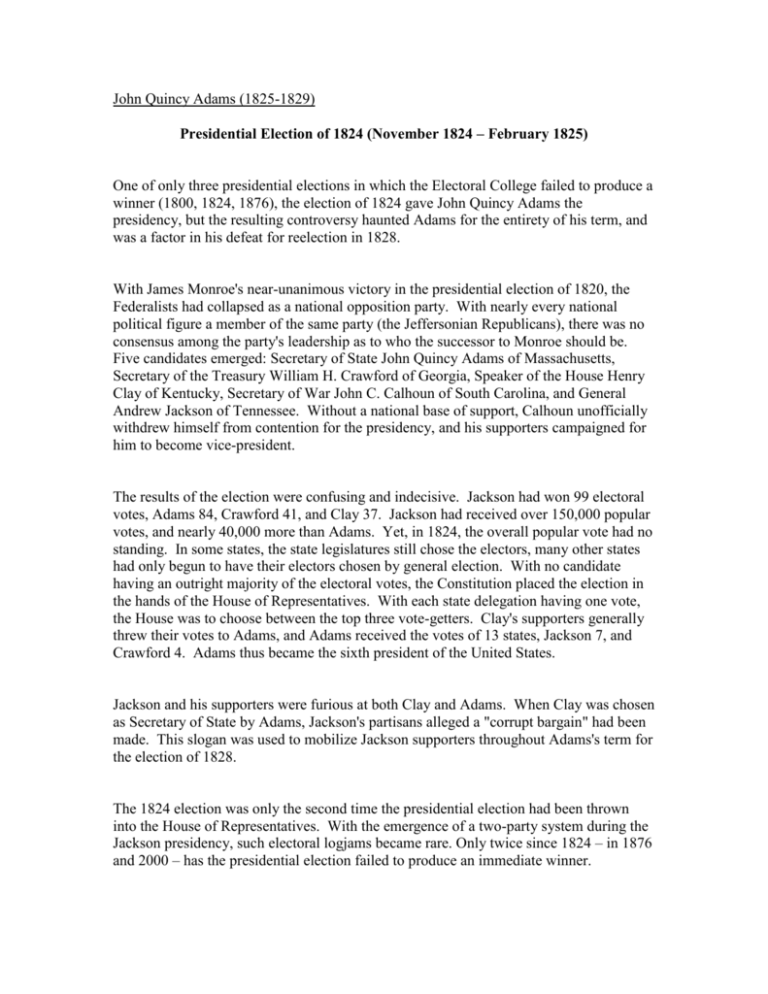
John Quincy Adams (1825-1829) Presidential Election of 1824 (November 1824 – February 1825) One of only three presidential elections in which the Electoral College failed to produce a winner (1800, 1824, 1876), the election of 1824 gave John Quincy Adams the presidency, but the resulting controversy haunted Adams for the entirety of his term, and was a factor in his defeat for reelection in 1828. With James Monroe's near-unanimous victory in the presidential election of 1820, the Federalists had collapsed as a national opposition party. With nearly every national political figure a member of the same party (the Jeffersonian Republicans), there was no consensus among the party's leadership as to who the successor to Monroe should be. Five candidates emerged: Secretary of State John Quincy Adams of Massachusetts, Secretary of the Treasury William H. Crawford of Georgia, Speaker of the House Henry Clay of Kentucky, Secretary of War John C. Calhoun of South Carolina, and General Andrew Jackson of Tennessee. Without a national base of support, Calhoun unofficially withdrew himself from contention for the presidency, and his supporters campaigned for him to become vice-president. The results of the election were confusing and indecisive. Jackson had won 99 electoral votes, Adams 84, Crawford 41, and Clay 37. Jackson had received over 150,000 popular votes, and nearly 40,000 more than Adams. Yet, in 1824, the overall popular vote had no standing. In some states, the state legislatures still chose the electors, many other states had only begun to have their electors chosen by general election. With no candidate having an outright majority of the electoral votes, the Constitution placed the election in the hands of the House of Representatives. With each state delegation having one vote, the House was to choose between the top three vote-getters. Clay's supporters generally threw their votes to Adams, and Adams received the votes of 13 states, Jackson 7, and Crawford 4. Adams thus became the sixth president of the United States. Jackson and his supporters were furious at both Clay and Adams. When Clay was chosen as Secretary of State by Adams, Jackson's partisans alleged a "corrupt bargain" had been made. This slogan was used to mobilize Jackson supporters throughout Adams's term for the election of 1828. The 1824 election was only the second time the presidential election had been thrown into the House of Representatives. With the emergence of a two-party system during the Jackson presidency, such electoral logjams became rare. Only twice since 1824 – in 1876 and 2000 – has the presidential election failed to produce an immediate winner. Sources: James E. Lewis, Jr., John Quincy Adams: Policymaker for the Union (Wilmington, Delaware: Scholarly Resources, 2001) Mary W. M. Hargreaves, The Presidency of John Quincy Adams (Lawrence: University Press of Kansas, 1985)
